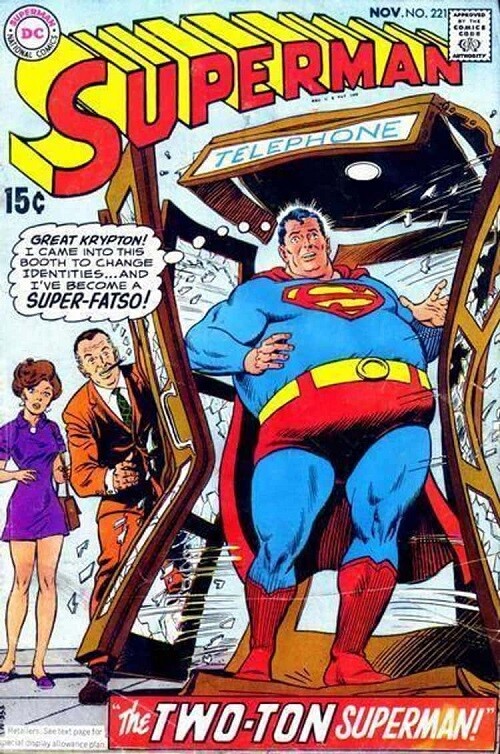Why It's Time To Retire Secret Identity Plots

We can't pretend like secret identities aren't a big part of the reason why superheroes became popular -- the idea that every other bespectacled dork is secretly a world-saving adonis resonates with a lot of comic book readers, for some mysterious reason. But this seemingly benign concept is also responsible for some of the dumbest superhero stories ever published, from all the ones where Superman acts like a psychopath to prevent his girlfriend from finding out they work together ...

DC Comics
... to that time period when Daredevil had to pretend to be his non-blind brother because God forbid his best friends in the world realize he's a superhero.

Marvel Comics
But at least those stories were silly fun. Most of the time, the need for a superhero to hide their identity is used as an excuse for the sort of cheap, forced, and excruciatingly drawn out drama that should never be seen outside of Central American soap operas that produce 365 episodes a year.
Superman & Lois, a fantastic show we've previously raved about, also provides some fantastic examples for why this trope sucks so hard. In the just-concluded second season (that's your cue that there are spoilers ahead), Superman's teenage son is dating his high school crush, who happens to be the daughter of Superman's old high school crush (it really is a small town). It's a perfectly fine storyline until we get to the part where he begins standing her up due to being busy saving the city with his Superman-Lite powers, but can't tell her about it because his parents forbid him from sharing the family secret. Eventually, she dumps him, which leads to a whole lot of moping on both sides.
It's not just that we've seen this plot play out a million times in superhero stories -- it's that the drama here is completely artificial and doesn't really reveal anything about the characters. Their relationship troubles aren't born out of Superman Jr.'s own decisions; he's just reacting to stuff while caught up in a century-old cliche. In this case, "the secret" isn't even a good metaphor for hiding your sexuality or anything like that because his parents and conservative grandpa are constantly cheering him on his powers while forcing him to hide them (how often are LGBT+ teens told "You should be even gayer, but if you tell anyone about it you're disowned"?).
It's frustrating that the same show can jump from high-stakes action and legitimately interesting character development to pointless and repetitive secret identity drama, but that's typical of superhero stories. And that's per design: secret identities were created to provide shallow conflicts that could be easily repeated over and over. The concept of secret identities was popularized through early 20th century pulp magazines, which were called that because they were printed in cheapest possible paper and meant to be thrown away after reading. Early superhero comics were pretty much pulp mags with more pictures, and so they followed the same formula -- every issue was written assuming the reader didn't know or care about what happened in the previous one.

DC Comics
Within that context, it made sense to have something simple and dumb like "The hero can't tell their loved one they're the hero" to provide a constantly renewable source of complications for the character, but this idea hasn't adapted well to long-form storytelling formats. That's why Marvel Studios has been wise to stay away from these storylines for the most part (even when the heroes do have secret identities) -- and probably why Superman & Lois itself seems to be moving away from them, based on the second season finale, in which pretty much all the main characters are let in on the fact that the Kent family is 50% alien. While at it, they also used the Super-kid's woes as an excuse to finally address the hypocrisy in serial-liar Clark Kent having the word "truth" in his motto, which almost makes all those teenage angst scenes worth it (almost).
In short: secret identities? Fine, and perhaps even necessary. Long plotlines about secret identities? Terrible and, by now, pointless. This trope should have died with the phone booth. Look that up, kids.
Follow Maxwell Yezpitelok's heroic effort to read and comment on every '90s Superman comic at Superman86to99.tumblr.com.
Thumbnail: Warner Bros. Television Distribution